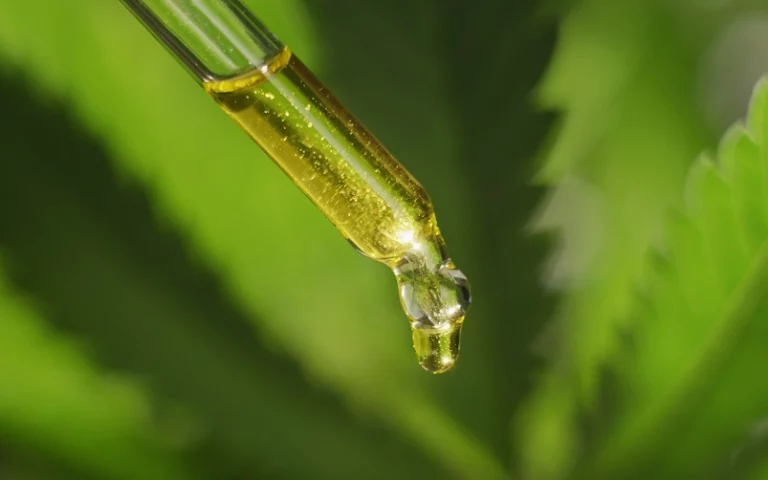Post-traumatic stress disorder (PTSD) and trauma-related conditions can profoundly affect an individual’s mental, emotional, and physical well-being. Traditional treatments, such as therapy and medication, have been effective for many, but the search for alternative remedies has led to a growing interest in cannabis oil as a potential aid for post-traumatic recovery.
Derived from the cannabis plant, cannabis oil has gained recognition for its ability to promote relaxation, reduce anxiety, and improve sleep—key factors in managing trauma. Products like Habibi Hash, though different in form and use, also share a legacy of calming and therapeutic properties, making cannabis-derived products a fascinating area of exploration for post-traumatic care.
Understanding Trauma and Its Impact
Trauma can result from a variety of experiences, including combat, accidents, abuse, or natural disasters. It often manifests as PTSD, characterized by symptoms such as:
- Flashbacks and intrusive thoughts
- Anxiety and hyperarousal
- Insomnia or nightmares
- Emotional numbness or depression
The effects of trauma extend beyond mental health, influencing physical well-being and social relationships. Addressing these symptoms requires a holistic approach, which is where cannabis oil may play a role.
What is Cannabis Oil?
Cannabis oil is a concentrated extract made from the cannabis plant, containing compounds such as THC (tetrahydrocannabinol) and CBD (cannabidiol). Unlike THC, which is psychoactive, CBD is non-intoxicating and has been extensively studied for its therapeutic properties.
The oil interacts with the endocannabinoid system (ECS), a network of receptors in the body that regulates stress, mood, pain, and sleep. By influencing this system, cannabis oil may help mitigate the symptoms associated with trauma.
How Cannabis Oil May Help with Post-Traumatic Recovery
Research into the effects of cannabis oil on trauma and PTSD is ongoing, but several promising findings highlight its potential:
1. Reducing Anxiety and Hyperarousal
Trauma often leads to heightened anxiety and an overactive stress response. Cannabis oil, particularly CBD-rich formulations, has been shown to reduce anxiety by calming the nervous system. This can help individuals feel more grounded and less reactive to triggers.
2. Improving Sleep
Insomnia and nightmares are common among trauma survivors. Cannabis oil may promote restful sleep by addressing underlying anxiety and inducing relaxation. Additionally, THC, when used in small doses, has been noted to reduce the occurrence of vivid dreams, which may alleviate nightmare-related distress.
3. Supporting Emotional Regulation
The ECS plays a critical role in regulating emotions. By enhancing the ECS’s functionality, cannabis oil may help stabilize mood, reduce irritability, and support emotional resilience.
4. Enhancing Fear Extinction
Fear extinction—the process of unlearning conditioned fear responses—is a key component of trauma recovery. Preliminary studies suggest that cannabis oil can enhance fear extinction, potentially making therapies like exposure therapy more effective.
Habibi Hash and Its Role in Relaxation
While cannabis oil is a concentrated extract, products like Habibi Hash offer another avenue for utilizing cannabis’s therapeutic properties. Habibi Hash, a traditional cannabis concentrate, is rich in cannabinoids and known for its potent relaxation effects.
Though not specifically studied for PTSD, Habibi Hash shares similarities with cannabis oil in its ability to soothe the mind and body. For individuals seeking deeper relaxation or relief from stress, it can complement the use of cannabis oil as part of a broader wellness routine.
How to Use Cannabis Oil for Post-Traumatic Recovery
If you’re considering cannabis oil as part of your recovery, here are a few tips to get started:
- Start Low and Go Slow
Begin with a small dose and gradually increase it until you find the optimal amount that works for you. - Choose the Right Product
Look for high-quality, full-spectrum cannabis oil, as it contains a range of cannabinoids and terpenes that work synergistically for enhanced benefits. - Incorporate It into Your Routine
Consistency is key. Use cannabis oil daily to maintain its effects, whether taken sublingually (under the tongue) or added to food and beverages. - Combine with Therapy
Cannabis oil can complement traditional trauma treatments like cognitive-behavioral therapy (CBT) or eye movement desensitization and reprocessing (EMDR).
Precautions and Considerations
While cannabis oil shows promise for trauma recovery, it’s important to approach it responsibly:
- Consult a healthcare professional before starting, especially if you’re on medication.
- Be mindful of THC content, as higher doses may increase anxiety in some individuals.
- Focus on products with lab-tested purity and potency.
The Road to Recovery with Cannabis Oil
The journey of healing from trauma is deeply personal, requiring patience and a combination of strategies tailored to each individual. Cannabis oil offers a natural, plant-based option that addresses the mental and physical toll of trauma, promoting calm and balance.
For those interested in exploring the broader spectrum of cannabis-based remedies, traditional products like Habibi Hash provide an additional layer of therapeutic potential. While more research is needed to fully understand the impact of cannabis on trauma recovery, its ability to support relaxation and emotional well-being makes it a valuable tool in the path toward healing.
Final Thoughts
Trauma recovery is a multifaceted process, and cannabis oil may serve as a powerful ally in managing symptoms and enhancing overall well-being. With its calming properties and ability to influence key systems in the body, cannabis oil offers hope for those seeking relief from the lingering effects of trauma.
Whether through cannabis oil, Habibi Hash, or a combination of approaches, the key is finding what works best for you. With the right support and tools, recovery is not just possible—it’s within reach.



